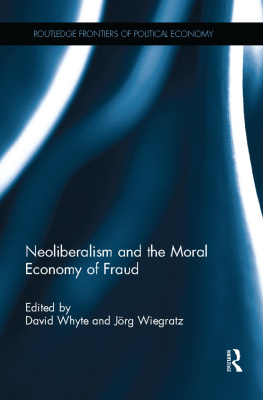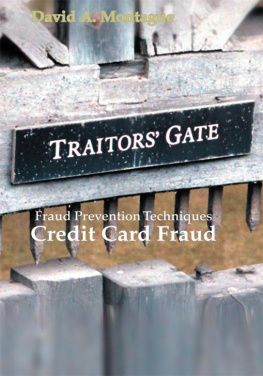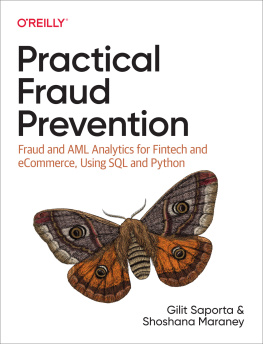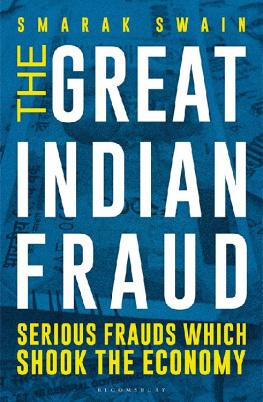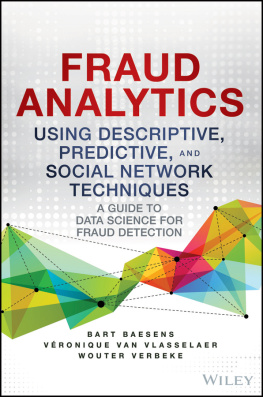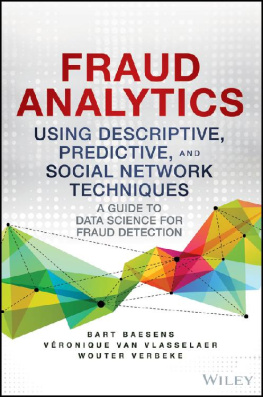Neoliberalism and the Moral Economy of Fraud
There is evidence that economic fraud has, in recent years, become routine activity in the economies of both high- and low-income countries. Many business sectors in todays global economy are rife with economic crime.
Neoliberalism and the Moral Economy of Fraud shows how neoliberal policies, reforms, ideas, social relations and practices have engendered a type of sociocultural change across the globe which is facilitating widespread fraud. This book investigates the moral worlds of fraud in different social and geographical settings, and shows how contemporary fraud is not the outcome of just a few bad apples. Authors from a range of disciplines including sociology, anthropology and political science, social policy and economics, employ case studies from the Global North and Global South to explore how particular values, morals and standards of behaviour rendered dominant by neoliberalism are encouraging the proliferation of fraud.
This book will be indispensable for those who are interested in political economy, development studies, economics, anthropology, sociology and criminology.
David Whyte is Professor of Socio-legal Studies at the University of Liverpool, UK.
Jrg Wiegratz is Lecturer in Political Economy of Global Development at the University of Leeds, UK.
Routledge Frontiers of Political Economy
For a complete list of titles in this series please visit www.routledge.com/books/series/SE0345.
Economics, Culture and Development
Eiman O. Zein-Elabdin
Paradigms in Political Economy
Kavous Ardalan
The Economics of Voting
Studies of self-interest, bargaining, duty and rights
Dan Usher
The Political Economy of Food and Finance
Ted P. Schmidt
The Evolution of Economies
An alternative approach to money bargaining
Patrick Spread
Representing Public Credit
Credible commitment, fiction, and the rise of the financial subject
Natalie Roxburgh
The Rejuvenation of Political Economy
Edited by Nobuharu Yokokawa, Kiichiro Yagi, Hiroyasu Uemura and Richard Westra
Macroeconomics After the Financial Crisis
A post-Keynesian perspective
Edited by Mogens Ove Madsen and Finn Olesen
Structural Analysis and the Process of Economic Development
Edited by Jonas Ljungberg
Economics and Power
A Marxist critique
Giulio Palermo
Neoliberalism and the Moral Economy of Fraud
Edited by David Whyte and Jrg Wiegratz
Neoliberalism and the Moral Economy of Fraud
Edited by David Whyte and Jrg Wiegratz

First published 2016
by Routledge
2 Park Square, Milton Park, Abingdon, Oxon OX14 4RN
and by Routledge
711 Third Avenue, New York, NY 10017
Routledge is an imprint of the Taylor & Francis Group, an informa business
2016 selection and editorial matter, David Whyte and Jrg Wiegratz; individual chapters, the contributors
The right of the editors to be identified as the author of the editorial material, and of the authors for their individual chapters, has been asserted in accordance with sections 77 and 78 of the Copyright, Designs and Patents Act 1988.
All rights reserved. No part of this book may be reprinted or reproduced or utilised in any form or by any electronic, mechanical, or other means, now known or hereafter invented, including photocopying and recording, or in any information storage or retrieval system, without permission in writing from the publishers.
Trademark notice: Product or corporate names may be trademarks or registered trademarks, and are used only for identification and explanation without intent to infringe.
British Library Cataloguing in Publication Data
A catalogue record for this book is available from the British Library
Library of Congress Cataloging in Publication Data
Names: Whyte, David, 1968- editor. | Wiegratz, Jrg, editor.
Title: Neoliberalism and the moral economy of fraud / edited by David Whyte and Jrg Wiegratz.
Description: Abingdon, Oxon ; New York, NY : Routledge, [2016]
Identifiers: LCCN 2015050394| ISBN 9781138930377 (hardback) | ISBN 9781315680545 (ebook)
Subjects: LCSH: NeoliberalismMoral and ethical aspects. | FraudEconomic aspects. | EconomicsMoral and ethical aspects.
Classification: LCC HB95 .N435 2016 | DDC 364.16/3dc23
LC record available at http://lccn.loc.gov/2015050394
ISBN: 978-1-138-93037-7 (hbk)
ISBN: 978-1-315-68054-5 (ebk)
Typeset in Times New Roman
by FiSH Books Ltd, Enfield
Contents
DAVID WHYTE AND JRG WIEGRATZ
JAMES G. CARRIER
STEVE TOMBS
ANDREW SAYER
BALIHAR SANGHERA
JOHN CHRISTENSEN
PAUL JONES AND MICHAEL MAIR
CHRIS HOLDEN
STEVE HALL AND GEORGIOS A. ANTONOPOULOS
MARITZA FELICES-LUNA
ERIK BHRE
DAVID ELLIS
SITNA QUIROZ
MATIAS DEWEY
NICOLETTE MAKOVICKY
CHRISTOPHER S. SWADER
DAVID WHYTE AND JRG WIEGRATZ
This book would not have been possible without the inspiration and support from a very large number of organisations and individuals. We are grateful to countless friends and colleagues who we have discussed the themes of this project with over the years. James Carrier in particular was instrumental in providing ideas and a draft proposal at the early stages of the project. We also thank the University of Leeds, School of Politics and International Studies (POLIS) and Centre for African Studies (LUCAS) for providing funds that allowed us to hold the international workshop on Neoliberalism, fraud and moral economy at the University of Leeds on 2 May 2014, where the contributors first presented papers that ended up in this book. We also thank colleagues who have been part of the project along the way, but in the end were unable to contribute to the book. Those colleagues include Gerhard Anders, Chlo Buire, Jose Maria Munoz and Matthew Watson. We also wish to acknowledge Laura Johnson and Andy Humphries at Routledge for their commitment to, and enthusiasm for, the project and support through the commissioning and production process. Thank you to all of the contributors of this volume for rising to both the practical demands and intellectual framing of their chapters, and for sticking with us on this project, even when our demands as editors might have at times seemed pedantic. Without their commitment and willingness to speak to the volume themes it would not be the book it is. We hope it has all been worth it in the end. A project like this takes up a lot of time and energy and involves sitting alone in libraries and offices for far too long. So we are most grateful to our families and friends for putting up with us through what is a profoundly anti-social process and always providing crucial moral support whenever and wherever it was needed.
Georgios A. Antonopoulos obtained his doctorate from the University of Durham in 2006. He is currently Professor of Criminology at the School of Social Sciences, Business and Law of Teesside University. His teaching and research interests include organised crime/illegal markets, the criminality, criminalisation and victimisation of minority ethnic groups, and qualitative research methods. He is an associate of the Cross-Border Crime Colloquium, associate editor of the journal Trends in Organised Crime and member of the editorial boards of the journals Global Crime, Journal of Financial Crime, Journal of Money Laundering Control
Next page
